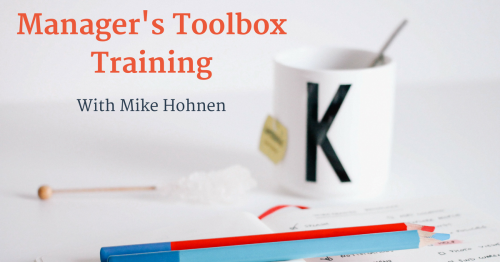
Last week, we looked at how progressive organisations are focusing on managing their employee experience as way to ensure the best possible customer experience. From a Service Profit Chain‘s point of view, this makes perfect sense.
We can create super sophisticated employee career journey maps – but we could also just look at what a day looks like on our team from an employee experience point of view. What are the emotional highs and lows in a day? So we looked at how managing positive ending has a huge influence on how the whole day is perceived.
This week, I would like to look at why managing the end of the day is just as or maybe even more important than managing the start of the day from a motivational point of view.
A reasonably accepted definition of motivation is:
“A reason or reasons for acting or behaving in a particular way”
So that reason, we call it the activator, for doing or not doing something can come from two main sources. It can be external; somebody does something to make you act (A request, a threat, a reward etc.). Or the activation comes from within yourself; you feel an inner urge to do something.
In either case, you end up doing whatever it is. That is the behaviour part. And all behaviour has a consequence. So there is this sequence: Activator – behaviour – consequence in everything we do.
In simple terms: You feel a craving for sweets. That activates you to get up and go to the cupboard and find a bar of chocolate. The consequence is that you feel good – your sugar craving is satisfied. (And, maybe you learn that eating chocolate is a solution for killing a sweet tooth.)
So now just pause for a minute.
What do you think has the largest influence on your behaviour on a day to day basis? The activator or the consequence?
If you are like most of the people I have in my workshops, you will say the Activator – We tend to think that we do things because there is a push. But that is not entirely correct.
80% of what we do or don’t do is determined by what we think the consequences are going to be. The drive is the consequence – that triggers the activator.
Ah, but that is not true, you may be thinking because I know that the consequences of eating chocolate is that I will get fat. So why do I still do it? Because we are all wired to value short-term consequences higher than long-term consequences. On top of that, we will value consequences that are certain, more than consequences that are a possibility in the future.
At 2 o’clock in the morning on New Year’s Eve – someone suggests that we crack open a bottle of Jack Daniels. The short-term well known consequence is that it is going to feel great. The long-term possible consequence is that we are going to feel terrible tomorrow.
That is also why it is hard to get people to stop smoking. The immediate 100% certain consequence is that they will feel a kick from the nicotine, the long term possible consequence is that it may kill them.
So back to managing our daily employee experience.
What do you think has the largest influence on our motivation to go to work? How the day starts (activation) or how the day ends (consequences)?
It’s a no brainer.
If we want our team to come in tomorrow, energised and ready to rock and roll, we need to think about how we manage the ending today. What was the consequence of their efforts today?
How are they going to feel when they go home: Elated, confident, positive? Or downcast, self blaming, frustrated and angry? Whatever it is, it is going to be our starting point tomorrow.
So how do we do a better job of managing our endings?
That is the subject of my upcoming tranings: The Manager’s Toolbox – you can join us and participate with your questions on comments live. Check it out here.
_________________________________________________________
This is the 12th article in a series on how to lead as a first time manger. If you would like to know more, check out other articles of the first time manager series:
- How are you supporting your first time managers?
- The big leap… from team member to team leader
- First time manager – The challenges
- Direction, Alignment & Commitment in 4 easy steps
- How your relations affect your results
- Powerful or powerless, what do you prefer?
- Behaviour
- Conversations, not small talk
- Take charge of your energy levels!
- You won’t get results by pussyfooting around the issues!
- What drives a fabulous employee experience?
